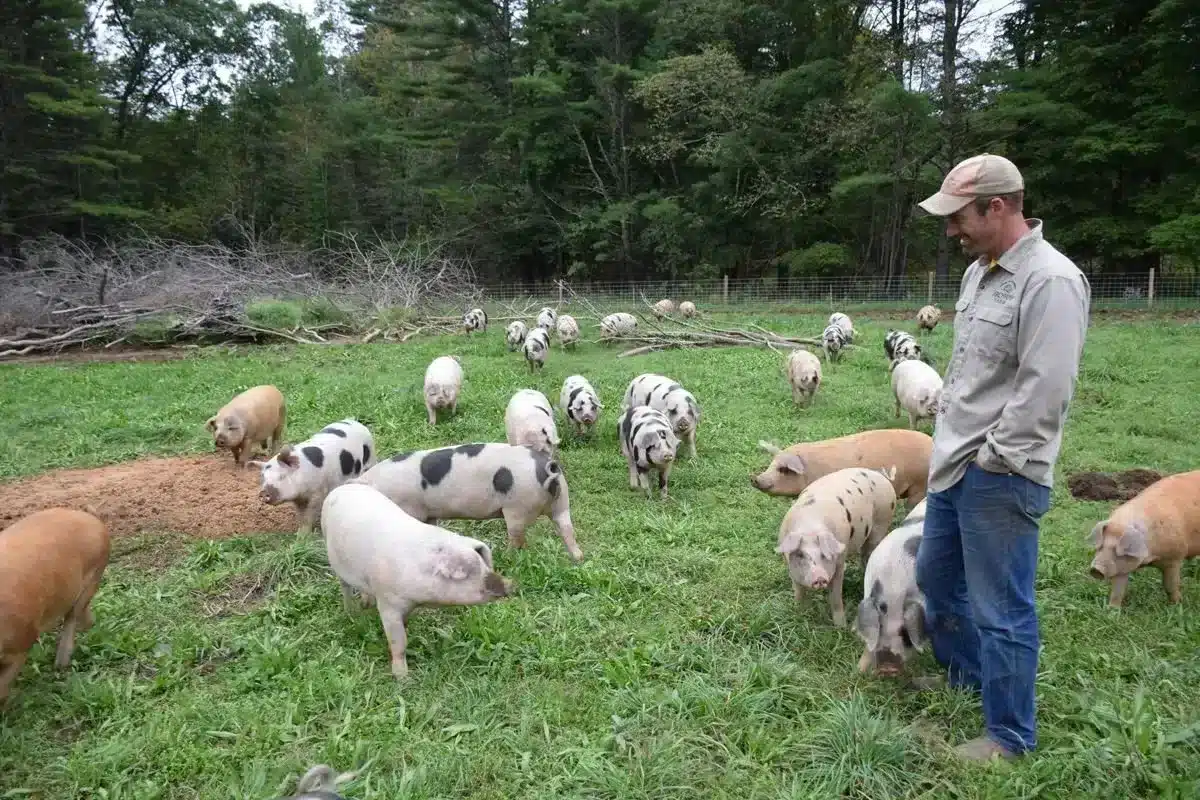Pigs Don’t Call the Cops: Why Buying Local Matters

We think an important part of why we’re doing what we’re doing is contributing to the rebuilding of our region’s agricultural economy. We source products within the New England foodshed, which we define as within 250 miles of our delivery area. Why is this important?
According to the American Farmland Trust, farms contribute more in property and other taxes than they require in government services. Generally, pigs do not call the police, cows do not go to school, and sweet corn doesn’t catch fire. The opposite is true of development; property developers that turn former agricultural land or forest land into residential or commercial properties create more demand for government services (schools, public transportation, sewer & water, trash collection, emergency services and others) than their additional tax dollars provide for (even more so if the development was partially financed by tax incentives).
AFT’s 2010 study found that residential properties have a median cost of $1.16 per dollar of tax revenue to provide public services, while working and open agricultural land have a cost of $0.35 per dollar of tax revenue. Put simply, agricultural land helps to support our local tax base by lowering the demand for public services per acre in a given locality.
We believe there is an obvious intrinsic value to open and working agricultural landscapes, but there is also a tangible economic value. New England is a world renowned tourist and outdoor recreation destination for our mountain vistas overlooking working pastures filled with cattle and livestock, and we think more livestock (read: not feedlots) and sustainable agriculture activity only increases the grandeur of the region as a pastoral landscape with much to offer visitors from around the world.
There is also a clear and demonstrated multiplier effect of spending your retail dollars locally. A Civic Economics study indicates a return of 3x on a dollar spent with a local business relative to one spent in a chain store. $100 spent in an independent local retailer generated $45 in secondary spending, compared to $14 for a big box chain. This secondary spending fuels other local retailers, their payrolls, schools, charities, town budgets and everything in between. Spending locally is particularly important in agriculture, where farmers generally only receive about $0.17 of your food dollar.
We’re determined to change this dynamic, by paying farmers above market prices and helping their businesses grow, utilizing local processing facilities, hiring our own local staff to organize and deliver our orders, and ultimately building a sustainable regional food system that supports New England’s overall health & economic well-being.
Sources:
Related Posts

Grass-Fed Classic Eggnog
A rich and creamy eggnog made with Walden’s milk and eggs.

Cooking Your Pasture-Raised Turkey
The difference between a Thanksgiving turkey raised outdoors on pasture and one raised inside in confinement is significant.

Smash Dumpling Tacos with Walden Pork
A novel (and delicious!) way to use ground pork in your weeknight rotation.